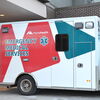Processing Your Payment
Please do not leave this page until complete. This can take a few moments.
- News
-
Editions
-
- Lists
-
Viewpoints
-
Our Events
-
Event Info
- Business Leaders of the Year Reception 2025
- Women's Leadership Forum 2025
- On the Road with Mainebiz in Bethel
- Health Care Forum 2025
- On The Road with Mainebiz in Greenville
- On The Road with Mainebiz in Waterville
- Small Business Forum 2025
- Outstanding Women in Business Reception 2025
- On The Road with Mainebiz in Bath
- 60 Ideas in 60 Minutes Portland 2025
- 40 Under 40 Awards Reception 2025
- On The Road with Mainebiz in Lewiston / Auburn
- 60 Ideas in 60 Minutes Bangor 2025
Award Honorees
- 2025 Business Leaders of the Year
- 2024 Women to Watch Honorees
- 2024 Business Leaders of the Year
- 2023 NextUp: 40 Under 40 Honorees
- 2023 Women to Watch Honorees
- 2023 Business Leaders of the Year
- 2022 NextUp: 40 Under 40 Honorees
- 2022 Women to Watch Honorees
- 2022 Business Leaders of the Year
-
-
Calendar
-
Biz Marketplace
- News
- Editions
- Lists
- Viewpoints
-
Our Events
Event Info
- View all Events
- Business Leaders of the Year Reception 2025
- Women's Leadership Forum 2025
- On the Road with Mainebiz in Bethel
- Health Care Forum 2025
- On The Road with Mainebiz in Greenville
- + More
- On The Road with Mainebiz in Waterville
- Small Business Forum 2025
- Outstanding Women in Business Reception 2025
- On The Road with Mainebiz in Bath
- 60 Ideas in 60 Minutes Portland 2025
- 40 Under 40 Awards Reception 2025
- On The Road with Mainebiz in Lewiston / Auburn
- 60 Ideas in 60 Minutes Bangor 2025
- - Less
Award Honorees
- 2025 Business Leaders of the Year
- 2024 Women to Watch Honorees
- 2024 Business Leaders of the Year
- 2023 NextUp: 40 Under 40 Honorees
- 2023 Women to Watch Honorees
- 2023 Business Leaders of the Year
- + More
- 2022 NextUp: 40 Under 40 Honorees
- 2022 Women to Watch Honorees
- 2022 Business Leaders of the Year
- Nomination Forms
- Calendar
- Biz Marketplace
With climate plans underway, Maine companies turn focus to supply chains
 Screenshot / Courtesy, Maine Climate Table
Clockwise from top left: Unum’s corporate sustainability manager, Lydia Covert; Sugarloaf Ski Resort’s director of marketing and communications, Ethan Austin; Jackson Laboratory’s senior director of facilities, John Fitzpatrick, of in Bar Harbor; and Ahold Delhaize’s vice president of sustainable retailing, Megan Hellstedt.
Screenshot / Courtesy, Maine Climate Table
Clockwise from top left: Unum’s corporate sustainability manager, Lydia Covert; Sugarloaf Ski Resort’s director of marketing and communications, Ethan Austin; Jackson Laboratory’s senior director of facilities, John Fitzpatrick, of in Bar Harbor; and Ahold Delhaize’s vice president of sustainable retailing, Megan Hellstedt.
Companies like insurance provider Unum and retailer Ahold Delhaize, which have large presences in Maine, have been stepping up carbon emission reduction strategies in recent years.
Now they’re looking at strategies to ensure businesses throughout their supply chains are also working to reduce emissions.
Ahold Delhaize, which owns Scarborough-based Hannaford, started measuring its climate emissions about a decade ago, knowing that reducing emissions — through strategies such as better refrigerants and more-efficient transportation — not only helps the climate but also benefits the business by saving money, said Megan Hellstedt, the company's vice president of sustainable retailing.
In the last couple of years, the company has stepped up its initiatives, partly in response to investors, she said, who were demanding accountability to climate science and the Paris Climate Agreement.
Ahold Delhaize developed long-term climate targets to meet by 2030. But its operations, including stores, warehouses and transportation, account for only about 5% of its total emissions.
“We know that 95% of our impact comes from embedded emission in the products we sell,” Hellstedt said.
So the company has developed new targets that account for impact throughout the supply chain, she added.
Hellstedt spoke Thursday during a virtual panel discussion called “Climate Preparedness on the Corporate Stage: In Maine and Beyond” and hosted by the Maine Climate Table. It was the second in the advocacy coalition’s four-part series called “Maine Businesses and Climate Change.”
Increasingly, Hellstedt said, Ahold Delhaize’s suppliers are taking on climate change.
“We talk with them about how we can help and partner together,” she said. “Emissions from the global food chain need to come down.”
Unum has been working from the cost-efficiency and safety standpoint in terms of the environmental impact of its buildings, said Lydia Covert, the insurer's corporate sustainability manager.
“In the past few years,” she said, “That’s ramped up to looking at our value chain.”
The company is also hearing from its investors, who have escalated their focus, she said, on what companies are doing about climate change.
Consumer and employee pressure
Customers and potential employees are also applying pressure, speakers said.
“Across our markets, we’re hearing a lot more from consumers who are saying, ‘What are you doing about climate change?’” said Hellstedt.
She added, “We’ve seen a gradual tick up in consumer interest in sustainability and curiosity about how products tie to climate change and sustainability.”
During this pandemic year, she continued, some consumer research shows that an interest among consumers in health issues ties into accelerating interest in sustainability.
“I think consumers are starting to connect the dots — ‘How is this impacting me and my family, what can I do differently and how can retailers help consumers make better choices?’ There’s definitely an increasing awareness,” she said.
In addition, commitment to emissions mitigation and sustainability is showing up as an important reason for potential employees to want to work for Ahold Delhaize, she added.
Sugarloaf is also seeing more customer interest in the ski resort's commitment to sustainability, said Ethan Austin, the resort’s director of marketing and communications.
“We hear about it frequently,” said Austin.
In recent years, the issue’s importance has grown among both customers and employees.
“It’s more and more important when people are deciding where they’re going to work and spend their time,” he said. “It’s more important to them now that companies align their values with their own, and a large part of that is sustainability.”
How climate and temperature affect snowfall has been on the resort’s radar for a long time, he continued. With skiing and snowboarding as the core of the business, it relies on temperatures cold enough to make snow.
The issue has become increasingly urgent in recent years, he said. Sugarloaf and its owner, Boyne Resorts, have a goal to be carbon neutral by 2030. Sugarloaf’s 2030 Plan includes efforts to prioritize sustainability as part of the resort’s future development.
To that end, recent steps have included inventorying the resort’s carbon emissions, finding out where emissions are coming from, and identifying steps to make the biggest impact on emissions in the shortest amount of time.
John Fitzpatrick, senior director of facilities of the Jackson Laboratory in Bar Harbor, said energy management and conservation have been on the genetics research facility’s radar for 30 years. For example, the lab offsets most of its fuel oil consumption with a high-tech biomass boiler that generates steam by burning wood pellets as a byproduct of Maine’s forests.
The lab’s facility in Sacramento, Calif., in recent weeks has seen the effects of climate change playing out through the spread of smoke from wildfires burning across the state. The JAX Farmington, Conn., facility has been in the path of hurricanes along the East Coast that are much stronger than they used to be. The Bar Harbor facility is struggling to keep up with rising summer temperatures.
At the lab’s facility in China, he said, “The air pollution and general environment that our new facility is in has given me pause that, if things are that bad there, they could quickly erode to the same level in the states if we don’t do something quickly.”













0 Comments